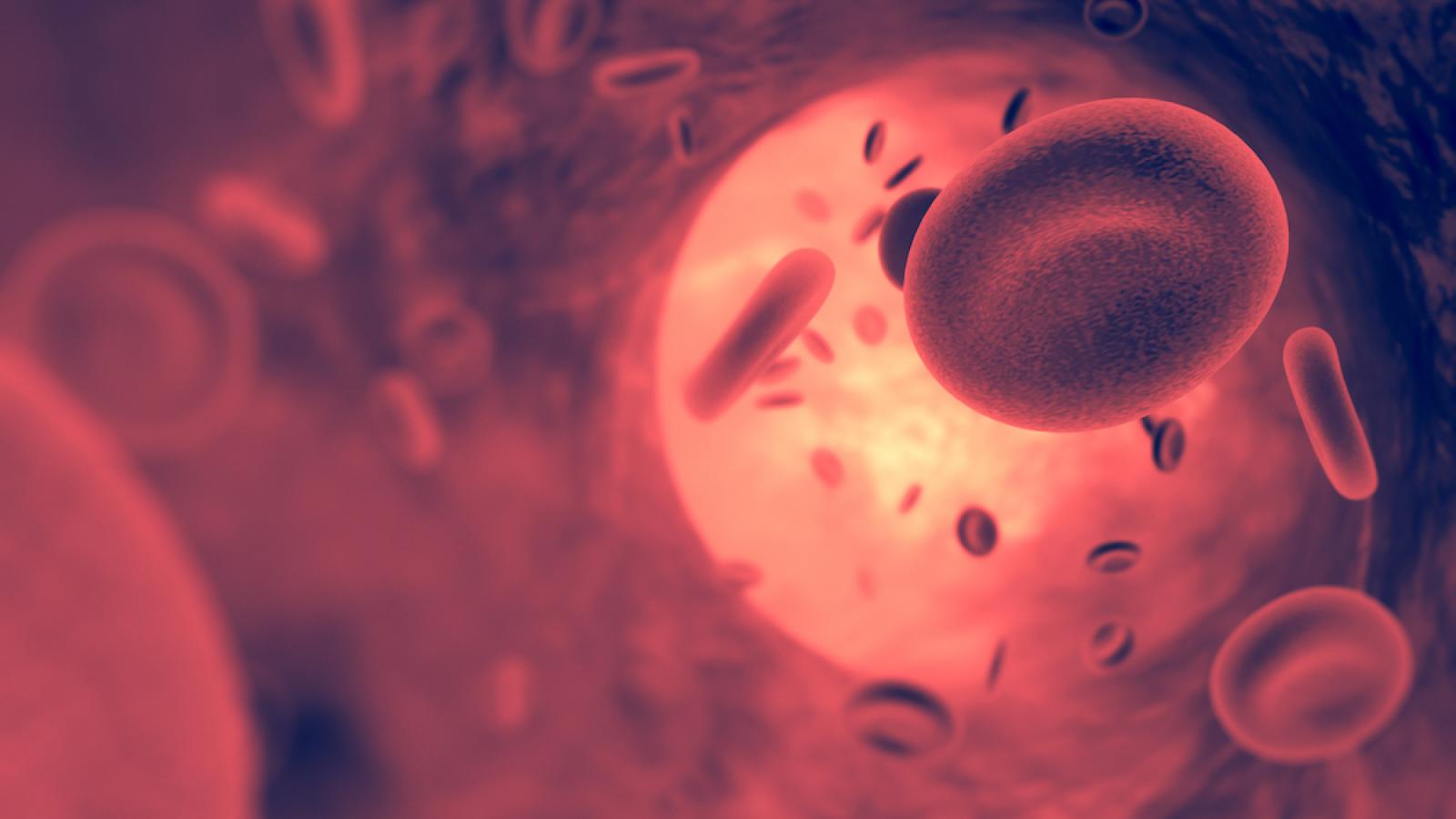Info
Alleviating the fall of energy supply to the brain in both Alzheimer's disease and vascular dementia
Just like a computer, the brain needs a supply of energy, which arrives in the blood as glucose and oxygen. In both Alzheimer’s disease and vascular dementia, the brain’s energy supply is reduced by a decrease of blood flow. For human Alzheimer’s disease (and a mouse model of it), the Attwell Lab has shown that this is caused by constriction of the smallest blood vessels - capillaries - by tiny muscle cells (called pericytes) that wrap around the capillaries.
The team therefore believe that a potential therapeutic avenue may lie in targeting the constriction and relaxation of pericytes, increasing energy supply to the brain and slowing this contribution to neurodegenerative conditions. In a paper released in 2024, the Attwell Lab established proof of principle for this approach in mice, showing that making the pericytes relax alleviates the fall of energy supply to the brain.
Lab news
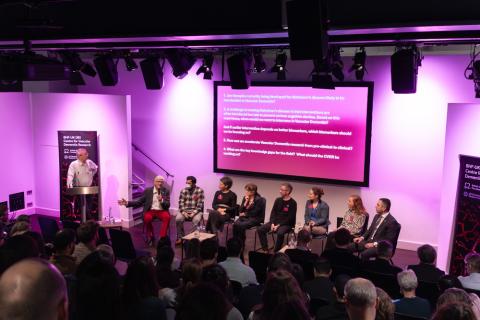
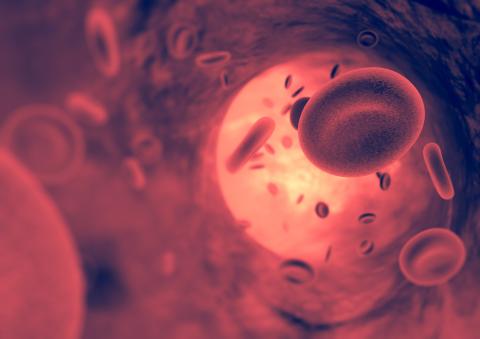
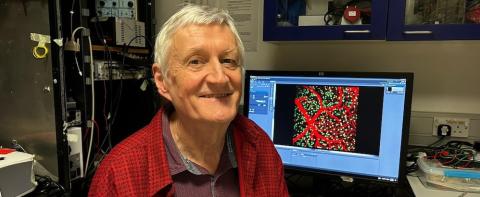
Prof David Attwell
Prof David Attwell is a Group Leader and Centre Director at the BHF-UK DRI Centre for Vascular Dementia Research. Find out more about his career and expertise on his profile page.

Research summary
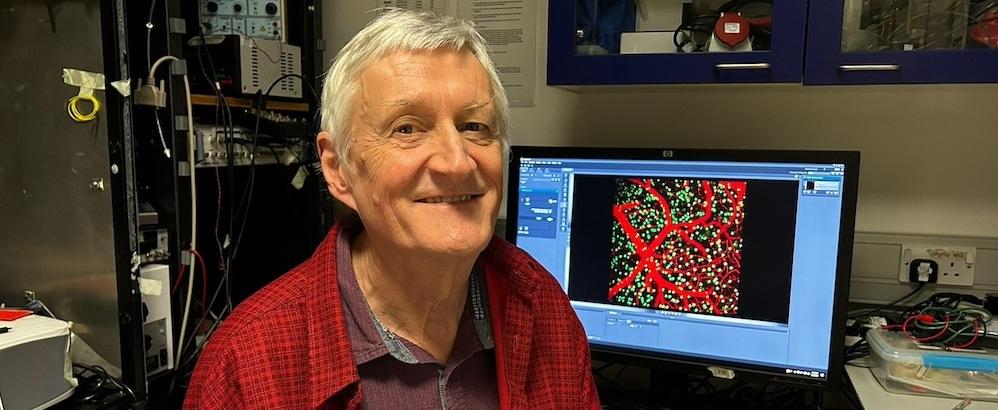
Prof David Attwell with an image of brain blood vessel Credit: Prof David Attwell
The Attwell Lab are interested in how a fall of cerebral blood flow (CBF), a possibly downstream decrease of blood-brain barrier (BBB) function and demyelination, contribute to vascular dementia and Alzheimer’s disease (AD). These are all early changes in the sequence of events leading to dementia, which may offer opportunities for prophylaxis or early treatment. The team have previously shown that constriction of brain capillaries by pericytes can reduce cerebral blood flow by 50% (as seen in AD), and that this can be mediated by amyloid beta evoking production of reactive oxygen species which release the vasoconstrictor endothelin-1. The resulting capillary constriction can be reversed by agents that raise cyclic nucleotide (cAMP and cGMP) levels or block L-type Ca2+ channels. These approaches may be useful adjuncts to lowering amyloid beta level using antibodies.
Aims of research programme
- Extend results on fall of CBF and BBB from Alzheimer’s to vascular dementia
- Define early changes in the properties of myelinated axons that disrupt neural circuit function in dementia
- Devise drug treatments to reverse the changes in blood flow and myelinated axons.
Key publications
Vacancies
Lab members
Post-docs, fellows and PhD students:
- Silvia Anderle
- George Sideris
- Mike Dixon
- Harvey Davis
- Rebecca Lilley
- Meiting Mai
- Ross Nortley
- Tania Quintela
- Jonathan Lezmyi
- Parisa Abbasi
Neurosurgeons
- Huma Sethi
Collaborators


Lab funders
Thank you to all those who support the Attwell Lab!





Banner image Credit: Michelangelus/Shutterstock
